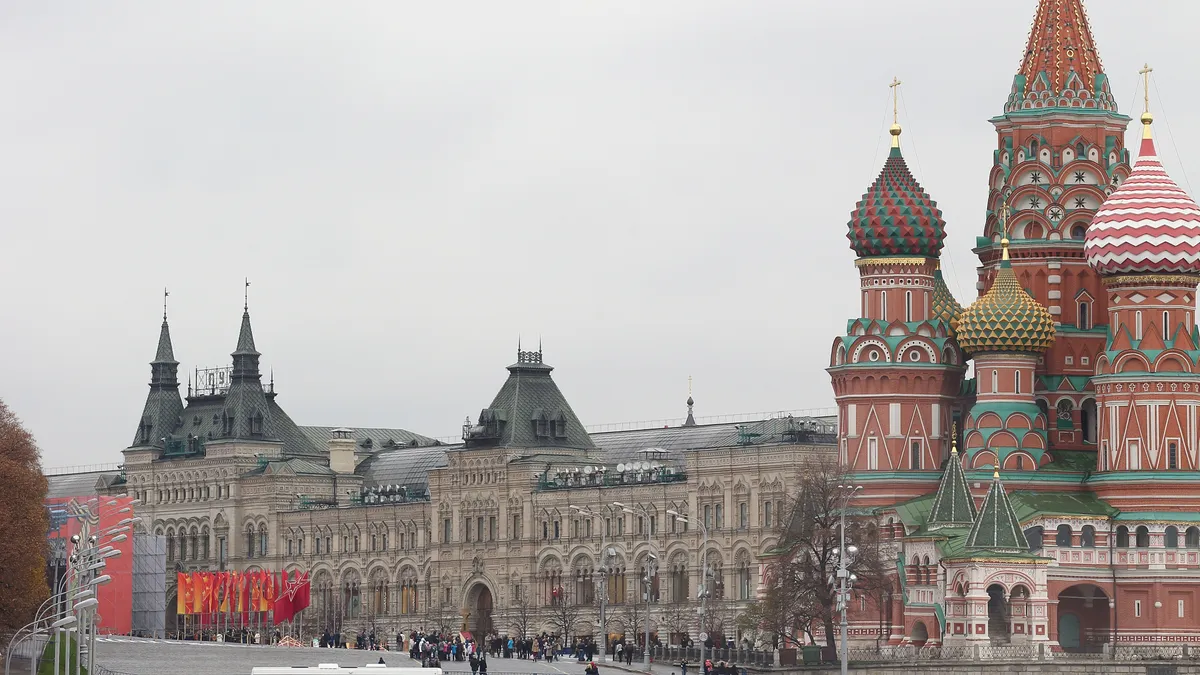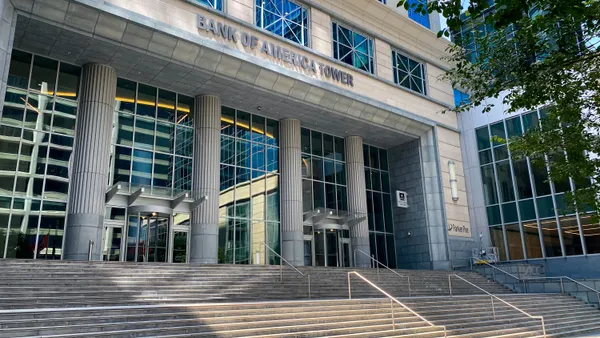Russian President Vladimir Putin is allowing Citi to sell its Russia arm to investment bank Renaissance Capital, an official document shows.
The Wall Street bank “is now moving expeditiously to complete the final steps of its preparation to transition the operations to the buyer and obtain the remaining necessary approvals,” a Citi spokesperson said in an emailed statement to Banking Dive.
The bank is “pleased” by Putin’s approval of the sale, the spokesperson said.
Citi first announced its intentions to exit its Russia consumer business in April 2021, when it said it planned to leave 13 international retail markets. But when the Russia-Ukraine war broke out and U.S. sanctions against Russia expanded, it announced plans to sell its commercial operations as well.
“Citi ended nearly all of the institutional banking services offered in Russia as of March 31, 2023,” a spokesperson told Yahoo! Finance. “Today, our services are only those necessary to fulfill our remaining legal and regulatory obligations as we continue to wind down our business in Russia.”
The deal is still subject to approval from U.S. regulators.
Of the 13 consumer markets Citi planned to exit in 2021, Australia, Bahrain, India, Indonesia, Malaysia, the Philippines, Taiwan, Thailand and Vietnam are complete, the spokesperson said.
Consumer markets in China, South Korea and now Russia are winding down; and the sale of its Poland arm to VeloBank is pending.
In 2022, Citi added Mexico to the list of consumer banks it wanted to offload. Following the proposed sale of 25% of its business to Mexican billionaire Fernando Chico Pardo, Citi plans to move forward with an initial public offering of the bank’s remainder, shirking a $9.3 billion offer from Grupo Mexico.
Citi continues to serve institutional clients in each market that it’s exiting or has exited on the consumer side, the spokesperson said.
The bank had $11.7 billion in clients’ exposure to Russia at the end of September, according to a securities filing. The exposure “consists of corporate dividends that Citi cannot remit to its clients due to restrictions imposed by the Russian government and are held with the [Deposit Insurance Agency],” Citi said.
Wells Fargo analyst Mike Mayo estimates that Citi’s restructuring is three-quarters done, but that financial benefits “only reflect est. ¼ of progress,” he said in a note to investors Wednesday.
Mayo estimates that the return on tangible common equity “could improve from 7% in 2024 to 8% in 2025 to double digits in 2026, with a reset thereafter to narrow the gap to peer[s],” he wrote. “Of note, Citi is a restructuring story that is also showing revenue growth, even if it took longer than expected to get to this point.”











